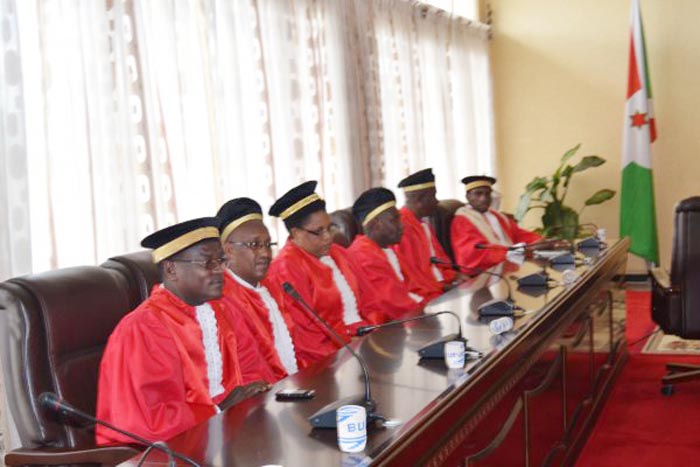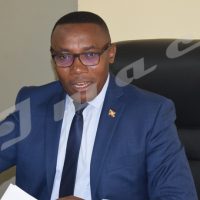A judicial crisis of serious magnitude has been added to the political fiasco that has gripped Burundi since President Pierre Nkurunziza announced his intention to seek re-election for a third term come June 2015. The country’s Constitutional Court’s ruling that the third term bid has constitutional backing has sparked more violent protests and left the political opposition even more entrenched in its resistance to the bid. -By Oluwatoyin Badejogbin
Mr Nkurunziza has served two five-year terms as President of Burundi. His first term commenced in 2005 after he was elected by the Parliament. His was elected for a second term by universal suffrage in 2010. However, his decision to run for a third term has been interpreted by the political opposition as a violation of Burundi’s Constitution and the Arusha accords that ended Burundi’s civil war and provided for a power sharing mechanism. On the other hand, Mr Nkurunziza’s supporters argue that there has been no violation of the Constitution because his first term in office came about through an election by parliament, rather than by ‘universal direct suffrage’ as required by the Constitution. Hence, in terms of the Constitution, Mr Nkurunziza’s supporters argue that he is entitled to seek re-election by universal direct suffrage. The Constitutional Court’s ruling upheld this argument.
We will not join issues with the merits or otherwise of the ruling here. The ruling is not available online and we therefore cannot comment on it. At any rate, the merits or demerits of the ruling are an issue for a separate debate. Of immediate concern to us are allegations that the court came under intense pressure to rule in favour of Mr Nkurunziza. These allegations were made by the court’s Vice President, the Honourable Justice Sylvere Nimpagaritse, who has now fled the country due to death threats from senior figures that he has refrained from naming. According to him, a majority of the court had believed that a third term would violate the Constitution and the Arusha accords. However, they changed their minds after receiving ‘invitations’ to join the ‘other side’ or risk their lives. There are reports that three other justices of the court may have fled the country also.
We are deeply concerned about these developments as they suggest a serious, deliberate and insidious attack on the rule of law and the independence and integrity of Burundi’s judicial system. No democracy should tolerate political interferences in the administration of justice, or take threats to the security of judicial personnel lightly. Reports about political interference in the Constitutional Court’s decision has the potential of eroding public confidence in the justice system and the rule of law.
While we maintain neutrality regarding the factual circumstances surrounding Justice Nimpagaritse’s allegation, reason compels us to comment that no one, ordinarily, would expect a person of His Lordship’s standing to make careless or unfounded allegations. This provides one more reason for Burundi’s government to take the allegations seriously, investigate them, remove all sources of interference with the judicial process, and take necessary measures to restore public confidence in justice administration and the rule of law. We call on the government to take these measures without delay. As a matter of urgency, the government should also act to ensure that all sources of threat to the security of Justice Nimpagaritse and his colleagues at the Constitutional Court are removed, and that the justices return to their constitutional duties.
Oluwatoyin Badejogbin is a researcher at the Democratic Governance and Rights Unit (DGRU), an applied research centre at the University of Cape Town’s law faculty. DGRU’s vision is of a socially just Africa, where equality and constitutional democracy are upheld by progressive and accountable legal systems, enforced by independent and transformative judiciaries, anchored by a strong rule of law. DGRU implements this vision by conducting applied and comparative research, supporting the development of independent, accountable and progressive judiciaries, promoting gender equality and diversity in the judiciary and legal profession, and enabling scholarship, advocacy and free online access to legal information.




















 IWACU Open Data
IWACU Open Data

